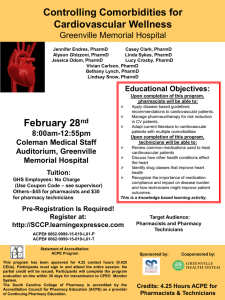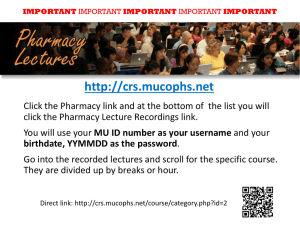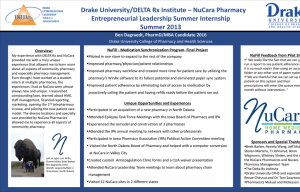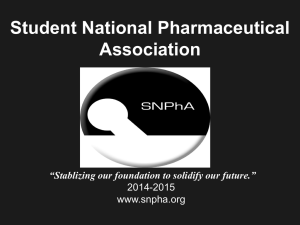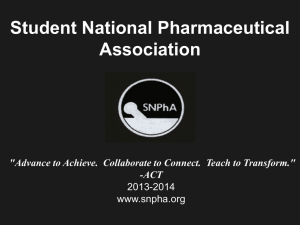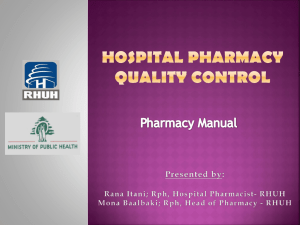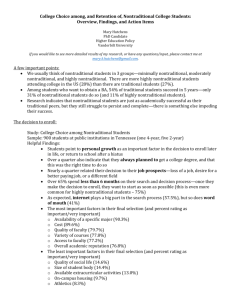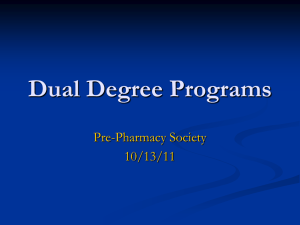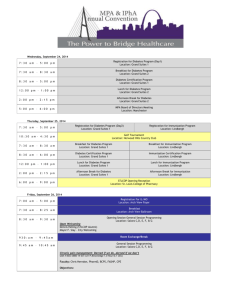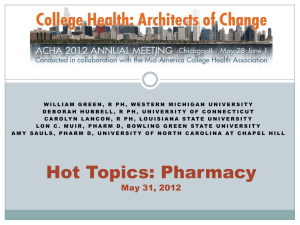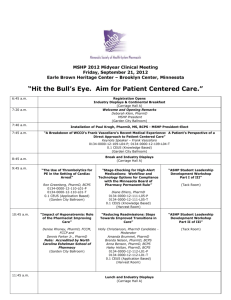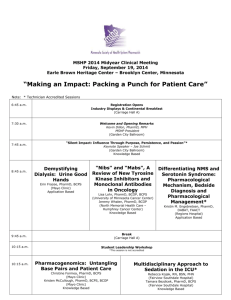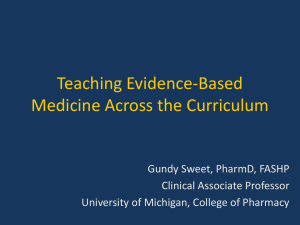Review of Nontraditional PharmD NTPD Programs
advertisement
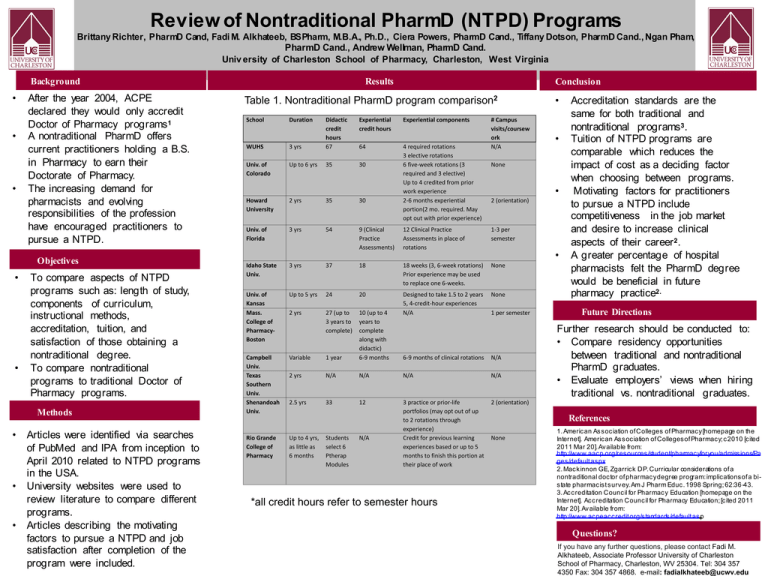
Review of Nontraditional PharmD (NTPD) Programs Brittany Richter, PharmD Cand, Fadi M. Alkhateeb, BSPharm, M.B.A., Ph.D., Ciera Powers, PharmD Cand., Tiffany Dotson, PharmD Cand., Ngan Pham, PharmD Cand., Andrew Wellman, PharmD Cand. Univ ersity of Charleston School of Pharmacy, Charleston, West Virginia Background • • • After the year 2004, ACPE declared they would only accredit Doctor of Pharmacy programs1 A nontraditional PharmD offers current practitioners holding a B.S. in Pharmacy to earn their Doctorate of Pharmacy. The increasing demand for pharmacists and evolving responsibilities of the profession have encouraged practitioners to pursue a NTPD. Objectives • • To compare aspects of NTPD programs such as: length of study, components of curriculum, instructional methods, accreditation, tuition, and satisfaction of those obtaining a nontraditional degree. To compare nontraditional programs to traditional Doctor of Pharmacy programs. Methods • • • Articles were identified via searches of PubMed and IPA from inception to April 2010 related to NTPD programs in the USA. University websites were used to review literature to compare different programs. Articles describing the motivating factors to pursue a NTPD and job satisfaction after completion of the program were included. Results Conclusion Table 1. Nontraditional PharmD program comparison2 School Duration WUHS 3 yrs Didactic credit hours 67 Univ. of Colorado Up to 6 yrs 35 Experiential credit hours 30 64 Experiential components 4 required rotations 3 elective rotations 6 five-week rotations (3 required and 3 elective) Up to 4 credited from prior work experience 2-6 months experiential portion(2 mo. required. May opt out with prior experience) # Campus visits/coursew ork N/A • 2 yrs 35 30 Univ. of Florida 3 yrs 54 9 (Clinical Practice Assessments) 12 Clinical Practice Assessments in place of rotations 1-3 per semester 2 (orientation) • Idaho State Univ. 3 yrs 37 18 18 weeks (3, 6-week rotations) Prior experience may be used to replace one 6-weeks. None Univ. of Kansas Mass. College of PharmacyBoston Up to 5 yrs 24 20 None 2 yrs 27 (up to 3 years to complete) Campbell Univ. Texas Southern Univ. Shenandoah Univ. Variable 1 year 10 (up to 4 years to complete along with didactic) 6-9 months Designed to take 1.5 to 2 years 5, 4-credit-hour experiences N/A 2 yrs N/A 2.5 yrs 33 Up to 4 yrs, as little as 6 months Students select 6 Ptherap Modules 1 per semester 6-9 months of clinical rotations N/A N/A N/A N/A 12 3 practice or prior-life portfolios (may opt out of up to 2 rotations through experience) Credit for previous learning experiences based or up to 5 months to finish this portion at their place of work 2 (orientation) N/A *all credit hours refer to semester hours • None Howard University Rio Grande College of Pharmacy • Accreditation standards are the same for both traditional and nontraditional programs3. Tuition of NTPD programs are comparable which reduces the impact of cost as a deciding factor when choosing between programs. Motivating factors for practitioners to pursue a NTPD include competitiveness in the job market and desire to increase clinical aspects of their career 2. A greater percentage of hospital pharmacists felt the PharmD degree would be beneficial in future pharmacy practice2. Future Directions Further research should be conducted to: • Compare residency opportunities between traditional and nontraditional PharmD graduates. • Evaluate employers’ views when hiring traditional vs. nontraditional graduates. References None 1. American Association of Colleges of Pharmacy [homepage on the Internet]. American Association of Colleges of Pharmacy; c2010 [cited 2011 Mar 20]. Available from: http://www.aacp.org/resources/student/pharmacyforyou/admissions/Pa ges/default.aspx 2. Mackinnon GE, Zgarrick DP. Curricular considerations of a nontraditional doctor of pharmacy degree program: implications of a bistate pharmacist survey. Am J Pharm Educ. 1998 Spring; 62:36 -43. 3. Accreditation Council for Pharmacy Education [homepage on the Internet]. Accreditation Council for Pharmacy Education; [cited 2011 Mar 20]. Available from: http://www.acpeaccredit.org/standards/default.as p Questions? If you have any further questions, please contact Fadi M. Alkhateeb, Associate Professor University of Charleston School of Pharmacy, Charleston, WV 25304. Tel: 304 357 4350 Fax: 304 357 4868. e-mail: fadialkhateeb@ucwv.edu

